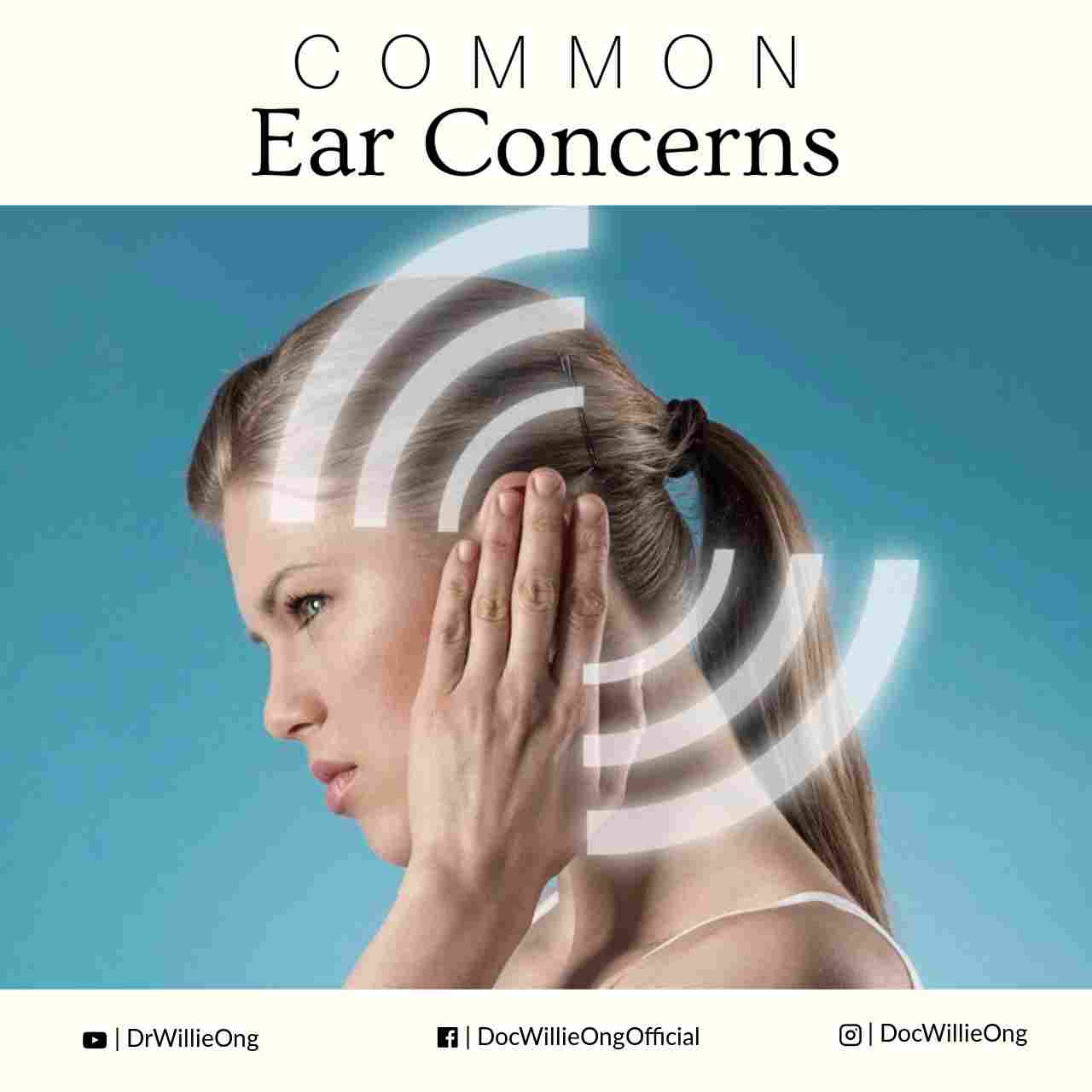Dr. Willie T. Ong (Internist and Cardiologist)
Most people will encounter ear problems in their lifetime. It could be earwax, earache or ringing in the ears. It pays to have some basic knowledge on what to do in these situations. The three most common problems are ear wax, swimmer’s ear, and middle ear infection.
Ear Wax:
Everyone is born with either one of two types of earwax. Does your ear have the dry and whitish kind of earwax or do you have the sticky, wet and yellow-orange type of earwax? Having either one is something we inherit from our parents.
In fact, earwax (medically called cerumen) has a purpose of protecting our eardrums from dust and dirt. Left alone, our earwax does its job of catching dirt and then slowly draining it out of the ear as it dries up. Periodically, fresh ear wax develops inside the ear canal.
However, in some cases, ear wax may get clogged up and cause hearing loss. The usual culprit is when an overeager person with a cotton bud pushes the earwax further inside the ear. Our medical advice is to never insert anything inside your ear because it can puncture your eardrum. Take note that a punctured ear drum may not heal anymore and the person can be left partially deaf for life.
To treat a plugged ear, follow these steps: (1) Drop a softening fluid like mineral oil or baby oil inside the ear. Doctors usually prescribe Otosol liquid. (Note: Do not do this if you think there is a chance that the eardrum is punctured.), (2) Lie on your side for 20 minutes to let the oil soak into the ear wax.
Do this twice a day for three days. Usually, the plugged ear will loosen by itself. If it doesn’t work, see your Ear, Nose and Throat (ENT) specialist to remove the ear wax.
Swimmer’s Ear:
Swimmer’s ear is an infection of the outer part of the ear due to bacteria or fungi. As the term implies, this is caused by swimming in dirty water. Swimmer’s ear starts as itchiness in the outer ear, followed by ear pain. As the infection progresses, there may be a smelly discharge coming out of the ear. This signifies a full-blown infection.
How do you prevent swimmer’s ear? (1) Choose clean swimming pools only, (2) Use an ear plug so water will not get inside your ear, (3) Before you swim you can protect your ears with a few drops of baby oil, (4) If your doctor says it’s safe, you can prepare your own eardrops to use after swimming. Mix a few drops of alcohol and a few drops of white vinegar in a one to one ratio. Place a few drops inside the ear and let it dry. Both alcohol and vinegar kill many bacteria and fungi.
If you develop swimmer’s ear, consult your ENT doctor who will prescribe an ear antibiotic.
Middle Ear Infection:
This common childhood ear infection occurs when the child has a cold, a sinus problem or an allergy. Medically, it is called Otitis Media. The problem lies in the Eustachian tube, a small tube that connects our nose to our ears, which is shorter and wider in children. Therefore, phlegm from the nose can easily migrate inside the child’s ear, which starts the infection.
These children develop ear pain, fever and hearing loss. In more serious cases, the eardrum could get punctured, and release yellowish fluid coming from inside the ear. Adults can suffer from this problem, too. Treatment for middle ear infection is seven to ten days of oral antibiotics.
Doctor’s tip: In order to differentiate swimmer’s ear (infection of the outer ear) and middle ear infection, a clinical maneuver is to wiggle the patient’s outer ear. If he complains of pain, then the infection is usually in the outer ear. If there is no pain, the infection could be in the middle ear.
For those with middle ear infection, here are some tips:
(1) Sit up more often to facilitate drainage of the Eustachian tubes. Babies should be fed at a 30 degree angle; (2) Drink lots of water to thin the mucous secretions and because swallowing helps drain the Eustachian tubes; (3) Try using baby oil or mineral oil heated in lukewarm water. Put a drop or two inside the ear to lessen the pain. (Note: Do not do this if you think there is a chance that the eardrum is punctured.); (4) Don’t sleep on an airplane’s descent. Stay awake and chew gum as this helps equalize the pressure inside your ears.
Lastly, if you have ear pain that does not go away in two days, it is wise to consult your ENT specialist.
Ear Trivia:
- People with a diagonal crease (line) across the lower part of the ear lobe have a higher chance of developing cholesterol problems and hardening of the arteries. They are at higher risk of a heart attack. (Yes, it’s true.)
- Men experience more hearing loss compared to women. This may be due to men working in jobs where they are subjected to loud sounds.
- Eight hours of exposure to sounds above 90 decibels can permanently damage our hearing. Ninety decibels corresponds to the sound of a large orchestra, a vacuum cleaner or loud snoring.
- Did you know that 10% of men purchase hearing aids because their wife gets annoyed that he doesn’t hear what she’s saying?



